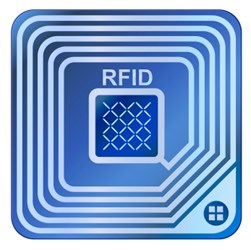Enhanced Driver's Licenses Gaining Traction
By Trisha Leon, contributing writer

For several years, the U.S. Department of Homeland Security (DHS) has been working with states to enhance drivers’ licenses and other forms of identification to comply with the Western Hemisphere Travel Initiative (WHIT). An enhanced drivers’ license (ELD) contains a RFID chips and a machine readable zone (MRZ) or bar code that can be scanned when RFID is not available. In addition to conventional uses, EDLs allow motorists to cross the Canadian, Mexican, and Caribbean borders without the use of a passport or other paperwork. The Department of Homeland Security states, “The top 39 land ports of entry, which process more than 95 percent of land border crossings, are equipped with RFID technology that helps facilitate travel by individual presenting EDLs or one of the other RFID-enabled documents.”
Some benefits of the enhanced driver’s license, besides the obvious convenience, are: though they are more expensive than typical driver’s licenses (about twice the cost), they are still less costly than passports; they reduce the risk of losing valuable, difficult to replace documents; and they make crossing borders faster and more efficient.
New York, Michigan, Vermont, Washington, and Minnesota, have passed legislation to approve EDLs. According to Cleveland.com, Ohio legislators considered EDLs earlier this year.
There are those, however, who do not welcome the use of enhanced driver’s licenses. Some civil liberties advocates worry that the government or criminals could exploit the licenses to track people and access their personal data. According to a study conducted by the University of Washington and RSA Labs, there are security risks associated with RFIDs. Though RFID-enabled documents will not carry personally identifiable information and will be issued with protective, radio-opaque sleeves that help prevent unwanted scanning, they could be subject to cloning, clandestine reading, and other attacks like denial-of-service and covert-channel attacks.
It looks as though more states will begin to make enhanced driver’s licenses an option for their citizens, increasing the need for technology and security practices around the use of RFID-enabled documents.
